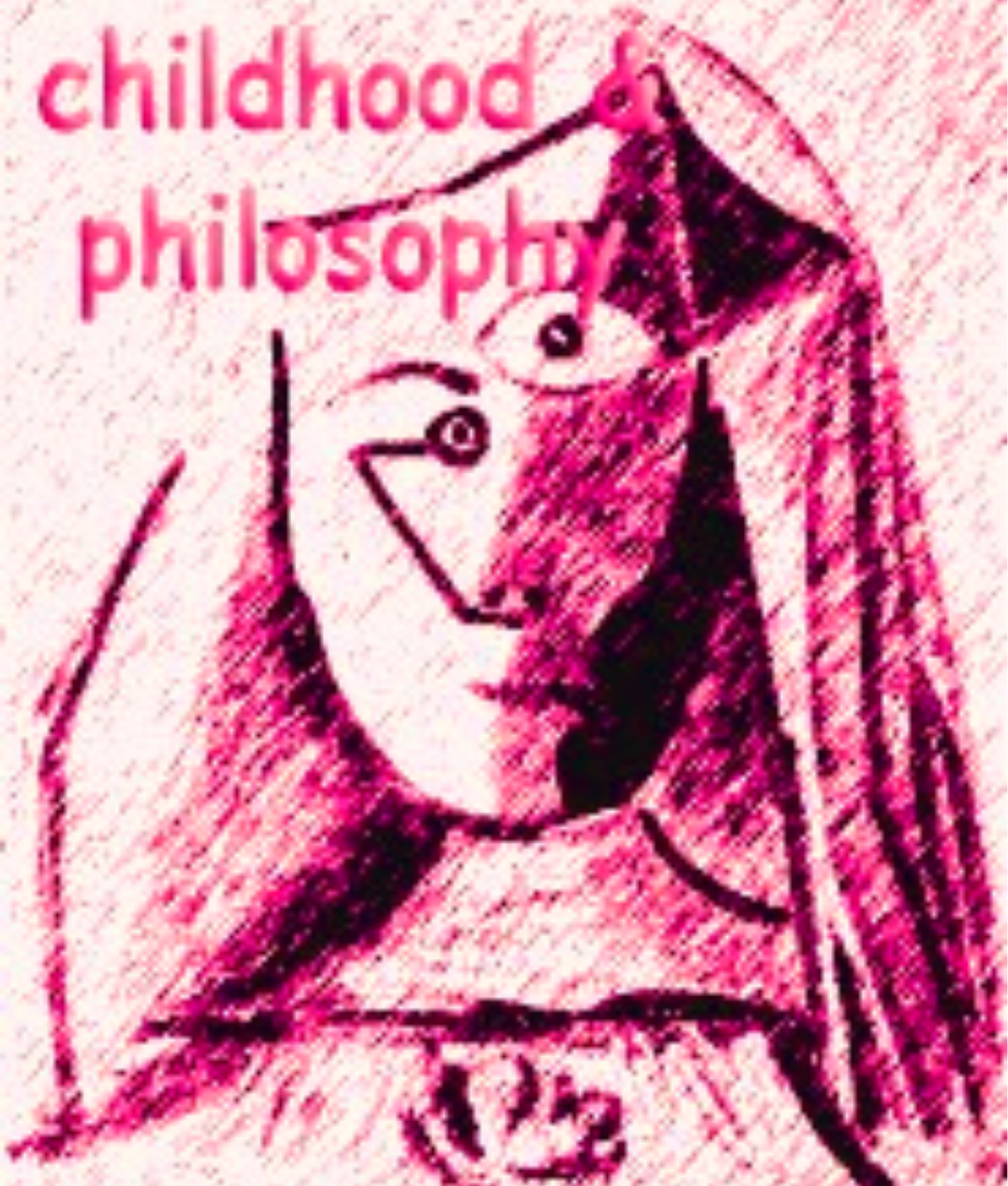creating the senses of the earth: the natural breath of the community of inquiry
DOI:
https://doi.org/10.12957/childphilo.2022.66131Keywords:
philosophy for children, nature, reciprocity, passivity, invisibility.Abstract
The earth is the archetypal image of the origin of humanity, but throughout the history of Western culture it has given way to other, more heavenly allegories. Enlightenment as a paradigm of knowledge consolidated itself in Western philosophical thought in a very convincing way as a production of meanings. Through this rereading of the first Greek metaphysics, thought gradually distanced itself from its materiality, from its humanity, from the possibility of admiring the concrete world, getting closer and closer to the need to create abstract objects, which, as ethical limits, political, aesthetic and epistemological, we end up meeting again in our lives. Visibility seems to be the basis of a Western mental habitus: recognition, officiality, legitimacy and certainty become visible signs with which we compare and validate our own experiences. The earth, as a less transparent element, with greater ability to hide, occult, encrypt represents, however, an image that is better suited to the discussion plan proposed in this text. The relationship with reality, in terms of visibility and invisibility, requires a new perception of the world: the underlying structure no longer assumes a transcendent level, but is understood as a plane of immanence, in which meaning is interior, produced by compositions; an amalgam of networks that intertwine in an imperceptible, invisible underground plane. What we propose here is not a vertical perspective, but a horizontal one like the ground. It is from this earthly thought that we want to reflect on what happens in philosophy and childhood; in philosophy with childhood and in the childhood of philosophy. In the present attempt of an ecophilosophy of education, the discussion plan requires a deviation from the guiding images with which we learn to do research. The intention of the following investigation is to look for another type of map: a kind of subterranean cartography, which pays attention not to what we can see, which has well-defined names and categories, but to what is hidden and inhabits a plane that is muddy, earthly, indistinguishable and absolutely alive. According to the Lipmanian model of Philosophy for Children, the subterranean and rhizomatic processes of the research community will be examined, comparing them to other collective movements that characterize the vegetable communities of plants that inhabit the natural world. Finally, three concepts considered relevant to escape the limits found in some contemporary pedagogical postures will be illustrated, suggesting other paths in the relationship between philosophy, childhood and education: reciprocity, passivity and invisibility.
Downloads
References
Arendt, H. (1997). Entre o passado e o futuro. São Paulo: Editora Perspectiva.
Bibbia, A. T. Genesi. In: La Sacra Bibbia. Curatore Conferenza Episcopale Italiana, Milano: Paoline Editoriale Libri, 2008.
Buber, M. (1997). Dialogo. In: Il principio dialogico e altri saggi. Milano: Edizioni San Paolo. pp. 200-210.
Certeau, M. (1998). A Invenção do cotidiano. 3 ed. Trad. Ephraim Ferreira Alves. Petrópolis: Vozes.
Deleuze, G.; Guattari, F. (2012). Mil Platôs: Capitalismo e Esquizofrenia. v. 1. São Paulo: Editora 34.
Dewey, J. (1968). La ricerca della certezza: studio del rapporto tra conoscenza e azione. Firenze: La Nuova Italia.
Fondazione Banca del Monte di Rovigo. A scuola nel bosco. n/d. Available: <http://www.fondazionebancadelmonte.rovigo.it/a-scuola-nel-bosco/>
Foucault, M. (1996). A ordem do discurso: aula inaugural no Collège de France, pronunciada em 2 de dezembro de 1970. São Paulo: Edições Loyola.
Freire, P. (1970). Pedagogia do oprimido. Rio de Janeiro, Paz e Terra.
Kastrup, V. (2015). O tátil e o háptico na experiência estética: considerações sobre arte e cegueira, in Revista Trágica: estudos de filosofia da imanência – 3o quadrimestre de 2015, v. 8, n. 3, pp.69-85.
Kohan, W.; Fernandes, R. A. (2020). Tempos da infância: entre um poeta, um filósofo, um educador. In: Educação e Pesquisa, v. 46.
Lipman, M. (2003). Educare al pensiero, Milano, Vita & Pensiero, pp.97-116; pp. 155-173; pp. 165-171.
Mancuso, S. (2017). Plant Revolution. Milano: Giunti Editore. pp.139-176
Mancuso, S. (2019). La nazione delle piante. Bari-Roma: Editori Laterza
Masschelein, J; Simons, M. (2013). Em defesa da escola: uma questão pública. Belo Horizonte: Autêntica Editora.
Mead, G. (1966). Mente, sé e società. Firenze: Giunti – Barbera.
Ministero dell’ istruzione. Available: <https://www.icrovigo3.edu.it/>
Nidi & Scuole in Natura a Rovigo. Facebook. Available: <https://www.facebook.com/pages/category/Interest/NidiScuole-in-Natura-a-Rovigo-2328149503885472/>
Nietzsche, F. (1991). Così parlo Zarathustra. Milano: Adelphi.
Poulakos, T.; Depew, D.J. (2004). Isocrates and civic education. Texas: University of Texas Press.
Radio Rovigo. Bimbi svegli che vanno a scuola nel bosco e imparano dalla natura. n/d. Available: <https://www.radiorovigo.net/bimbi-svegli-che-vanno-a-scuola-nel-bosco-e-imparano-dalla-natura/>
Santi, M. (2005), Philosophy for Children: un curricolo per imparare a pensare. Napoli: Liguori Editore. pp. 145-154; pp.181-192.
Santi, M. (2006), Ragionare con il discorso: il pensiero argomentativo nelle discussioni in classe. Napoli: Liguori Editore. pp. 55-84; pp. 85- 134.
Schalau, Jeff. (2016). Understanding Plant Roots. In: Backyard gardener. University of Arizona Cooperative Extension, Yavapai County, March 9. Available: <https://cals.arizona.edu/yavapai/anr/hort/byg/archive/understandingplantroots.html>




